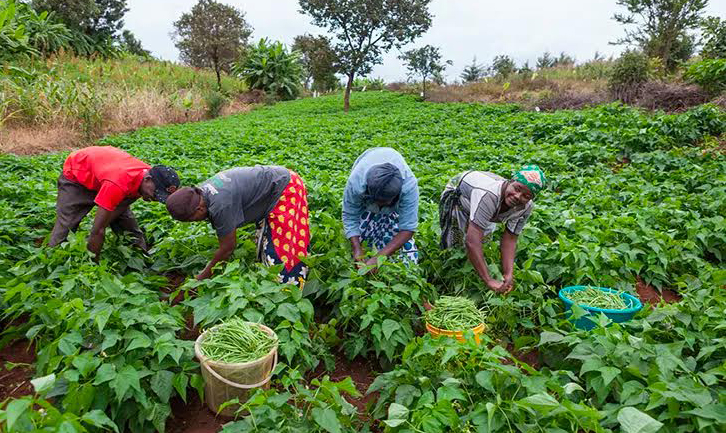
For Nigeria to make progress and curb the challenges of food insecurity, the attitude of both government and the people must change.
This was the position of the Director, Agribusiness Incubation Centre (ABIC), Michael Okpara University of Agriculture, Umudike, Abia State, Dr Philips Nto, in his speech as the Special Guest at the first 2025 Congress of the Abia State Council of Nigeria Union of Journalists (NUJ), where he positing that the time has come for Nigerians to imperatively take to agriculture and agribusiness.
He said Nigerians should embrace the numerous opportunities in the agri-food value chain.
He noted that the ABIC project was conceived in 2017 by the Federal Ministry of Agriculture and Food Security (FMAFS) and designed to have centres domiciled in the Faculties of Agriculture of universities to enhance sustainable livelihood development through agribusiness and entrepreneurship across the country.
“The ABIC vision is to be a hub where trainees acquire knowledge of agribusiness and entrepreneurial skills and, most significantly, to enhance the capacity of trainees for practical demonstrations of the lectures they received, help to fast-track the attainment of self-sufficiency in food and nutrition for the country and promoting import substitution for the Nigerian economy.”
He noted that ABIC was established in October 2023, in six universities across Nigeria, including the Federal University, Lafia, and Michael Okpara University of Agriculture, Umudike (MOUAU), under the supervision of the Minister of Agriculture and Food Security.
Dr Nto, who was appointed Director of MOUAU ABIC Centre, after serving as Abia State Commissioner for Finance and Economic Planning, urged the media to drive this ABIC initiative of diversifying the economy from oil to agriculture and thus boosting the nation’s economy.
He said: “At ABIC, we offer training on a variety of options, each with investment potential for our members. These options include, but are not limited to production of confectionaries from indigenous root/tuber crops (value addition to root/tubers), such as cassava, sweet potato, cocoyam, etc.”
On how Nigeria, as a nation can tackle food insecurity, Dr Nto stated that whether it is time for everyone in the country to become a farmer or take an interest in the agribusiness value chain, if not as a primary occupation, but a secondary option.
“It is also time for us to embrace simple yet mechanised methods of agriculture and agribusiness, employing technology and improved seedlings.
“Additionally, Nigeria has favourable agricultural climatic conditions, including rainy and dry seasons, with rivers and oceans across the country, while Israel depends more on water recycling, which is reticulated from North to South to irrigate agriculture unlike in Nigeria where oil is piped to northern Nigeria from the southern part.”
While describing this scenario as ironical, he said Israel’s GDP of about $575b, is higher than Nigeria’s about $370b, which interestingly, shows that Israel’s economy is heavily dependent on agriculture.
Little wonder, Israel is ranked 24th in the global Food Security Index, while Nigeria is ranked 107th, this suggests that Nigeria might have suffered from misplacement of priorities; hence he called for a change in strategy.
Looking at America with six time zones, he said their economic activities continue smoothly 24 hours per week (24/7) while Nigeria, with only one time zone, cannot even achieve remarkable economic growth outside oil.






